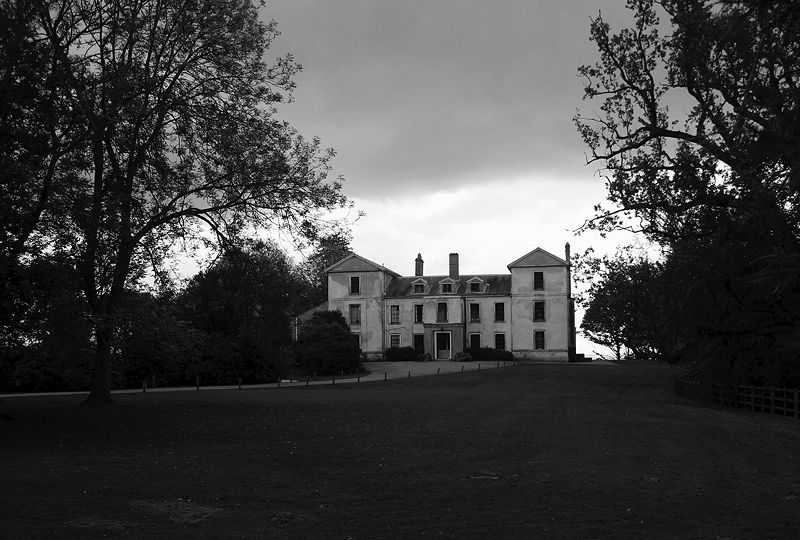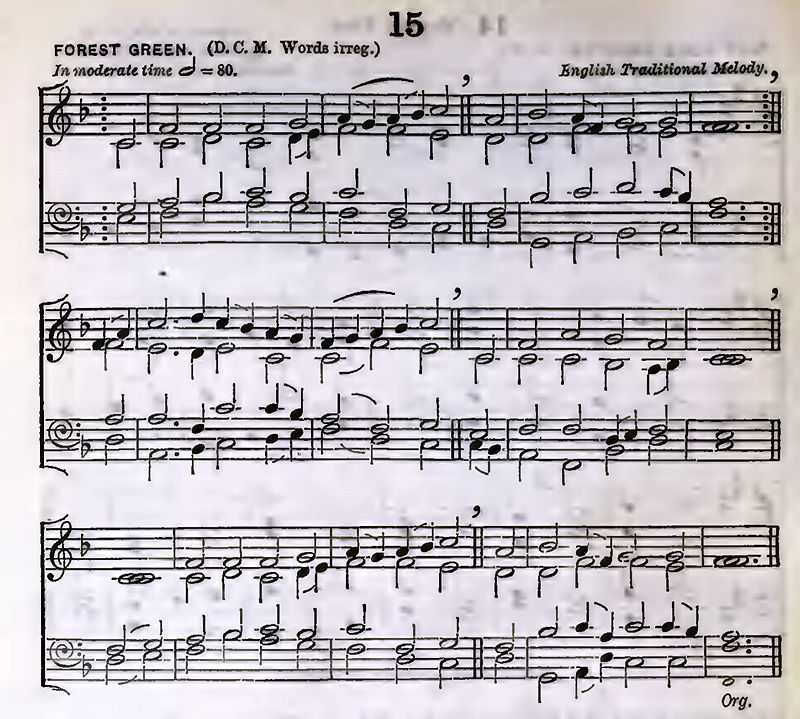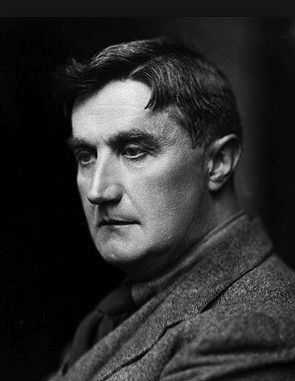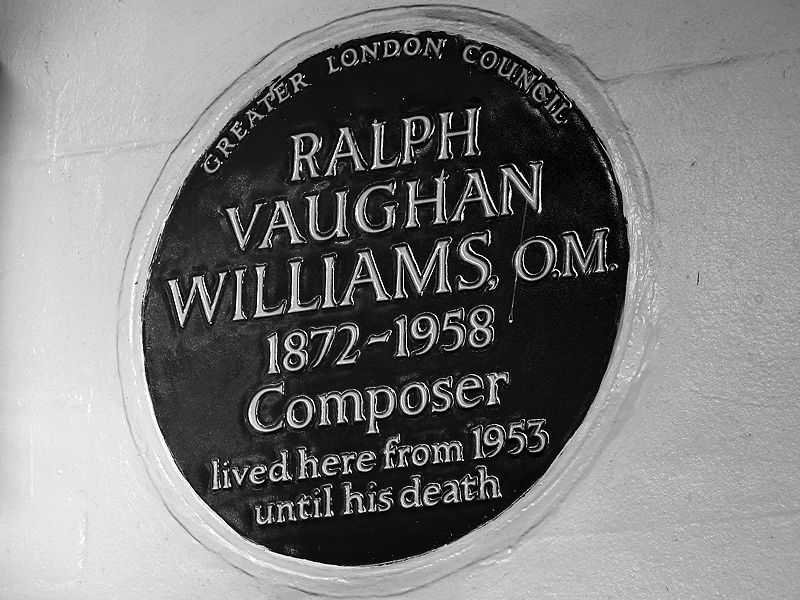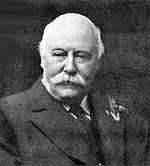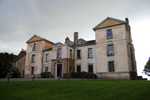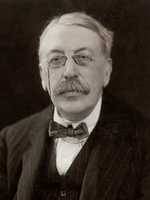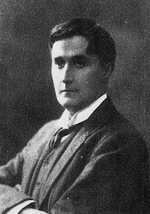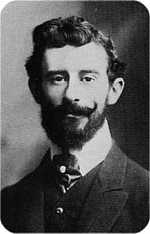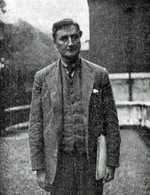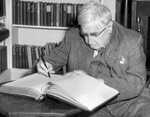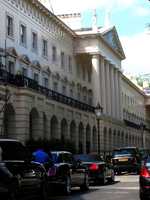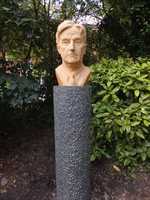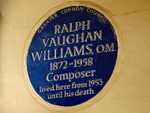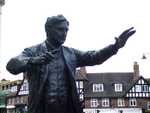1. Williams’s early life
Ralph Vaughan Williams was born on October 12, 1872 in the Cotswold village of Down Ampney, Gloucestershire.
He was the third child and younger son of Reverend Arthur Vaughan Williams, a well-to-do vicar, and wife Margaret Wedgwood.
When Ralph was two and a half years old, his father died. His mother returned to her mother’s mansion at Leith Hill Place.
Vaughan Williams’s maternal grandmother taught him to read and his aunt gave him his first music lessons. By the time he was six, he had composed his first piano piece, The Robins Nest. He was an insatiable reader and had an impressive collection of books in his nursery.
In 1883, Vaughan Williams entered Field House, a preparatory school in Rottingdean, in the city of Brighton and Hove, East Sussex. In 1887, he transferred to a public school, Charterhouse, in Godalming, Surrey. He had taken violin, piano, and viola lessons. At Charterhouse, he decided to organise a concert. He performed one of his own compositions, a Pianoforte Trio in G.
After Vaughan Williams left Charterhouse, he was eager to pursue a career as a musician. The viola was his favourite instrument. The viola raised some eyebrows in his family, so it was decided that he should begin a musical career by studying to be an organist, which was more in keeping with his social status.
In 1890, Vaughan Williams entered the Royal College of Music (RCM) in London. He studied organ with Walter Parrott and composition with his idol, Hubert Parry.
Vaughan Williams’s family continued to have doubts about his musical talent and the efficacy of a musical career and insisted that he get a university education. To appease his family, he left RCM and entered Trinity College, Cambridge in 1892.
He studied music and history. He received his Bachelor of Music in 1894 and his Bachelor of Arts in 1895. He returned to RCM in 1895 and completed his studies. In that same year he obtained a job at St. Barnabas as a church organist and choirmaster.
Vaughan Williams met Adeline Fisher while at Cambridge. She was the daughter of Herbert William Fisher, a noted British historian. They were married on October 9, 1897.
2. Early career
After his marriage in 1897, Vaughan Williams took a leave and went on a six-month honeymoon in Germany.
Combining pleasure and business, he worked on his last period of formal study in composition as an apprentice musician with Max Bruch.
After returning to London, Vaughan Williams decided to work for a doctorate in music at Cambridge. He passed his examination and earned his Doctor of Music at Cambridge in 1899. It was formerly conferred in 1901.
Vaughan Williams’s first important venture was the song Linden Lea which he composed in 1902. It was printed in the Vocalist, a music publication, and later as separate sheet music.
Between 1904 and 1906, Vaughan Williams was music editor for a new hymn book, The English Hymnal. He wrote Sine Nomini (For all the Saints). Also, he helped found the amateur Leith Hill Music Festival in 1905. He was appointed principal conductor.
Vaughan Williams was introduced to Maurice Ravel and studied with him for three months in Paris, between 1907 and 1908. He credits Ravel with helping him replace his old style with freshness and imagination.
In 1914, before the start of World War I, Ralph composed two large scale works, the first version of A London Symphony and The Lark Ascending. When the war started, he felt obligated to enlist. He began his military service in the Royal Army Medical Corp as an ambulance orderly with the rank of private.
In 1917, Vaughan Williams was commissioned as lieutenant in the Royal Artillery where he was responsible for the guns and horses. The continued noise of the guns damaged his hearing and led to deafness in his later years.
After the armistice in November 1918, Ralph was transferred from the artillery unit and given the title Director of Music in the First Army of the British Expeditionary Force in France. He had been offered a teaching position at RCM. He would immediately move back into academia as a professor upon being dismissed from the army.
3. Williams’s later life
A series of events in the 1920s marked a special period in Vaughan Williams’s life.
His third symphony, A Pastoral Symphony, was performed in Queen’s Hall with Adrian Boult conducting the Orchestra of the Royal Philharmonics Society.
Next, Vaughan Williams was invited by Carl Stoeckel, a wealthy music patron from Connecticut, to come to America and participate in a musical festival in Norwalk, Connecticut and conduct A Pastoral Symphony.
Two weeks after Vaughan Williams returned from Connecticut, his one-act opera The Shepherds of the Delectable Mountains was performed at the RCM. The piece was a chapter in the story of his lifelong concern to make an opera from John Bunyan’s The Pilgrim’s Progress. The occasion was honored by the presence of Queen Mary, the consort of King George V.
In 1922, the British Broadcasting Corporation (BBC) experimented with a new initiative. After everything was in place, Vaughan Williams gave his first broadcast talk on Christmas Eve in 1924. This became an important part of his life in music
The 1930s was bittersweet for Vaughan Williams. In 1932, he gave a series of lectures at Bryn Mawr College in Pennsylvania. Later, in 1934, his longtime friend, Gustav Holst died.
In 1935, Vaughan Williams was awarded the Order of Merit by King George V. Two years later, in 1937, his mother died. At the same time his wife, Adeline, had become increasingly immobile with arthritis.
In 1938, he met Ursula Woods, a young poet. They became friends and over the next decade, she would become his muse and help him take care of his ailing wife. When World War II broke out, Vaughan Williams did civilian war work and composed a film score for the film 49th Parallel.
In 1943, his Fifth Symphony was performed at The Prom (The Henry Wood Promenade Concerts). His Sixth Symphony followed in 1948. In 1951 Vaughan Williams’s wife died. This occurred about the same time that his last opera The Pilgrims Progress, John Bunyan’s allegory, was staged at Convent Gardens.
In February 1953, Vaughan Williams and Ursula Woods were married. He was forty years her senior. In 1954, they traveled to America where he was asked to lecture and conduct at Cornell University in Ithaca, New York. During the mid to late fifties, the Seventh, Eighth, and Ninth Symphonies were completed.
4. Finest works & legacy
The Lark Ascending remains one of Vaughan Williams’s most popular and well-known orchestral creations.
It was adapted from a 122-line poem by George Meredith and scored for solo violin in 1921.
Vaughan Williams’s second symphony, A London Symphony, includes sounds heard in London and remains well received. Also popular among his orchestral music is Fantasia on a Theme by Thomas Tallis. A composer of English sacred music, Tallis was a sixteenth century English composer.
Among Vaughan Williams’s popular stage works was Job: A Masque for Dancing, a one act ballet performed in 1931. It was the first ballet to be performed by an entirely British team.
The Pilgrims Progress was an opera performed in 1951. Vaughan Williams based it on John Bunyan’s allegory The Pilgrim’s Progress. Its acceptance was slow, but it is now appreciated and frequently performed.
Ralph Vaughan Williams is often referred to as a late bloomer. Clearly, he was not a prodigy, but when one reviews his life, one can only wonder why his potential wasn’t tapped when he wrote his first song for piano at six years of age.
Vaughan Williams was a prolific musician. Almost like an archaeologist, Vaughan Williams discovered and preserved over eight hundred folk songs. He was the embodiment of the pioneering spirit of English music.
In 1954, he set up and endowed the Ralph Vaughan Williams Trust to support young composers and to promote new or neglected music. On August 26, 1958, Ralph Vaughan Williams died at Hanover Terrace. After a private funeral at Golders Green, he was cremated and his ashes placed in the north choir aisle of Westminster Abbey.
